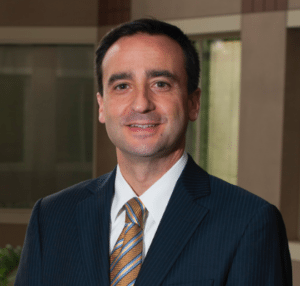Drug importation makes law enforcement’s job harder, says former FDA-OCI director

Former Director of the U.S. FDA’s Office of Criminal Investigations George Karavetsos
This editorial by George Karavetsos was published in The Gadsden Times on April 11, 2019. Karavetsos is the former director of the U.S. Food and Drug Administration’s Office of Criminal Investigations.
Legalized drug importation makes law enforcement’s job harder
Many Americans believe the solution to lowering prescription drug prices is a simple one. Other countries have strict government price controls on their pharmaceuticals. Let’s just buy drugs from foreign pharmacies and – as a result – we’ll have cheaper options in the United States. There are bills introduced in the Florida legislature to do exactly that, and policymakers have publicly discussed the creation of a state program to allow the importation of drugs from Canada. Contrary to this opinion, I believe it would be an irreversible mistake.
The aspect of this debate that no one is discussing is that drug importation is fraught with danger and that, even today, Americans are being hurt and even dying because of counterfeit medications being imported into this country. Adding insult to injury, while some might point to Canada as being a safe source, counterfeit medications are transshipped through Canada from other countries in remote corners of the globe.
The Centers for Disease Control and Prevention (CDC) has pointed out that the recent increase in drug overdose deaths – over 70,000 Americans died of overdoses in 2017 – is being driven by the highly lethal synthetic drug fentanyl. And fentanyl is increasingly found in counterfeit drugs seized in the United States. For criminal elements, there is enormous profitability in the fentanyl trade. Spend a few thousand dollars on fentanyl powder, often produced in Chinese laboratories, and a pill press and it’s possible to create massive supplies of counterfeit pills that can be sold for millions of dollars. The United States is an extraordinarily lucrative market for these criminals to target.
Law enforcement officials have found counterfeit drugs laced with fentanyl in 46 states, and deaths have occurred as a result of these fake medicines in 29 of those states.
Legalizing drug importation only increases the avenues through which these counterfeit drugs can enter the country. During my time as Director of the Office of Criminal Investigations at the Food and Drug Administration, I constantly encountered our law enforcement agencies being hard pressed to contain the flow of dangerous counterfeits coming into the United States through ports of entry and even the international mail services. FDA, Customs and Border Protection, and the U.S. Postal Service are fighting a difficult battle trying to detect and intercept illegal drugs contained in hundreds of millions of packages moving through legitimate channels.
If Florida and other states legalize drug importation, it will only make law enforcement’s job tougher, if not impossible.
Even with the problems we’re currently facing, it could be much worse. We benefit from a closed drug supply in the United States. All manufacturing and distribution of prescription drugs in this country is overseen by the FDA, adhering to the strictest standards. That won’t be the case if we start opening the gates for drugs from foreign distributors, sending us medications with points of origin that can’t be traced with absolute certainty.
Importation advocates will argue that importing drugs from pharmacies in friendly nations like Canada is a benign action with no threat to safety. Evidence would argue otherwise.
Just last month, the FDA issued a warning letter to a Canada-based pharmacy named CanaRx. It seems that CanaRx is contracting with health insurers in the United States to ship unapproved, and possibly counterfeit medications, that are likely originating from countries other than Canada. An episode like this is particularly dangerous for U.S. consumers because they will trust drugs being provided as part of their employer’s health plan, not knowing that those medicines potentially came through an unethical foreign broker.
This will be the danger faced by Floridians. Florida families and patients will be led to believe they are consuming state-sanctioned low-price drugs with no knowledge as to the path those drugs traveled, or what was done to them on the way to their medicine cabinet.
The safety of the U.S. drug supply is considered the best in the world because the FDA is constantly enforcing regulations and holding every entity’s feet to the fire to make them follow the law. There is a great deal we must do to counter and thwart criminal activity, but we can’t win this battle if Florida and other states insist on making the job harder through legalized drug importation.